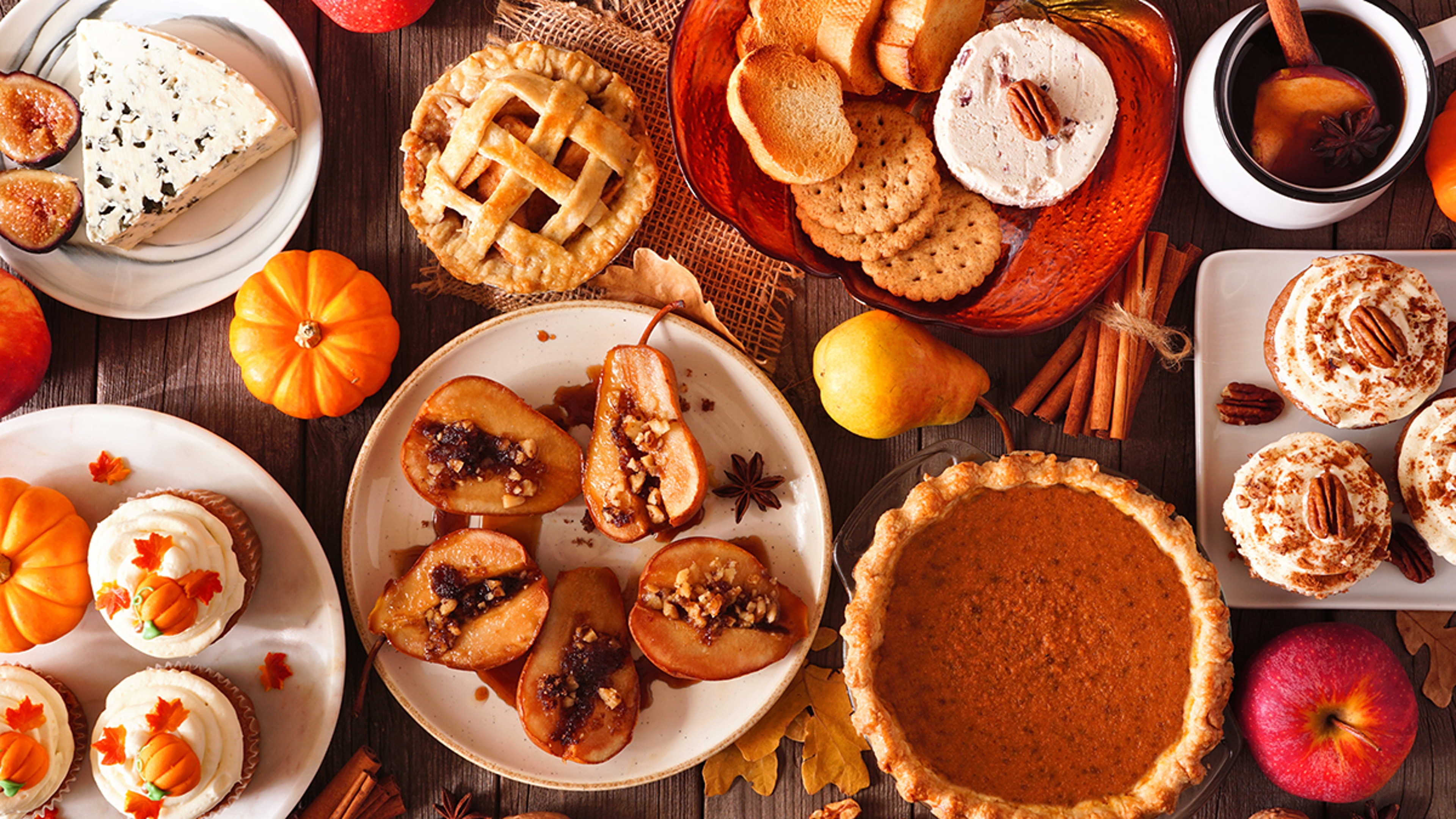The Psychology of Fall Flavors
Why we are drawn to autumn’s bounties and how they captivate our senses.
Sep 25, 2024
Fall truly is a magical time for food and eating. Sure, spring and summer have their undeniable delights: grilled meats, sweet melons, and all the accompanying fruit pies (and let’s not forget about seasonal produce like tomatoes). Even dining during winter has a comforting appeal, with ginormous feasts made for all those family gatherings and holiday parties, bowls of spicy soup, and mugs of hot chocolate to add to those quiet, cozy moments while reading a good book in front of a roaring fire.
But autumn has a unique and special wonder that’s all its own. In the parlance of the day, the foods just hit differently. Maybe it’s because of the crisp early morning air or the beauty of the changing leaves. From bountiful harvests of plump, juicy pears and glasses filled with sparkling ciders; and from hayrides and Halloween to football games (and tailgating, with even more grilled meats!), outdoor fairs, and more, fall is fun, festive, and most of all…flavorful!
READ MORE: Beyond Be-Leaf: An All-Encompassing Guide to Fall Foliage
Pumpkin. Maple. Warming spices like cinnamon, ginger, and cloves. Cranberry. Pecan. Toasted caramel and brown butter. With these amazing scents and flavors filling our menus — and homes — from late September through December, it’s no wonder that study after study reveals that fall is undisputedly our favorite season of all.

The science behind our love of fall
Researchers point to many different reasons why fall has such an incredible appeal to us — and why it tops so many polls as our most cherished time of year. After long summer vacations and getaways, the season is a return to “normalcy” and our traditional day-to-day routines, many say.
Fall also serves as what psychologists call a “temporal landmark.” It helps us divide our lives into distinct phases. After years of going back to school in the fall, we begin to innately think of the autumn season as a period of rebirth and renewal — a time that’s also filled with excitement for both traditions past and the new challenges ahead.
And, of course, fall is also a time of harvests, indulgences, and nostalgia, especially when it comes to all those classic aromas and flavors of the season. Simply put, we just love the fun and joy that fall brings, whether in the moment or through the memories and reflections it helps to conjure of days gone by.
“After a hot, humid summer, it’s natural to have a craving for scents that are associated with a different season,” says Pamela Dalton, Ph.D, a researcher with Philadelphia’s acclaimed Monell Chemical Senses Center, an institute dedicated to the study of taste and smell.
“The advent of fall often brings about the desire for flavors and scents associated with nostalgia, warmth, harvest, and the spices we use when making typical fall dishes,” she explains. “For many people, these aromas evoke all sorts of memories and the positive emotions that are associated with the season.”
Fall scents and flavors also just make us feel good, Dalton adds. Sure, they’re pleasant and delicious. But they also impact our bodies, triggering a rush of feel-good hormones and even affecting our systems as a whole.
“Flavors and aromas — and our associations with them — can have a dramatic effect on our physiology,” she explains. “For example, inhaling deeply when we encounter an odor we really like can decrease our heart rate and elicit a calming sensation.”Research also shows that experiencing pleasing fall flavors and scents that we enjoy, such as spiced apple, maple, cinnamon, and even vanilla, can boost our mood, enhance cognitive function, reduce stress levels, and sometimes even help us rest better at night. In other words: Fall’s classic flavors don’t just taste good — they make us feel good, too. No wonder we love them so much!









